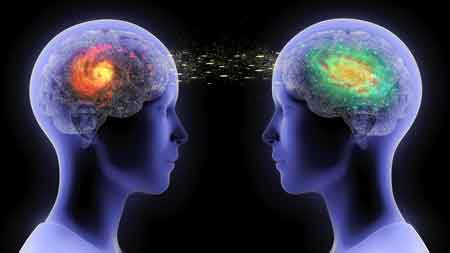Lucid dreaming simply means knowing that you’re dreaming while you’re dreaming. According to the Lucidity Institute, Frederik van Eeden first used the term “lucid” to describe this type of dream in the late 1880s. Van Eeden thought lucidity explained the sense of mental clarity that sometimes comes along with conscious dreaming.
Lucidity often occurs when people realize that something is amiss, and they cannot possibly be experiencing reality—such as they can fly or they’re in deep conversation with a loved one who passed away long ago.
Could lucid dreaming be another state of consciousness?

A 2009 study reported in SLEEP journal, says that lucid dreaming is a hybrid state of consciousness that has definable and measurable differences from either waking or REM sleep. The study says that lucid dreams cause increased electrical activity — especially in the frontal lobe — in the brain that can be measured using an EEG. Many scientists believe that this area of the brain is the seat of higher mental functions and is associated with self -awareness. Interestingly, according to Descartes, it is also the seat of the soul.
Ryan Hurd, a dream researcher and editor of DreamStudies.org, agrees, for the most part, with these findings. However, he believes that more research is required before anyone can make a definite statement as to what a lucid dream actually is. In other words, is it a higher level of consciousness or just one of those things that some people can do while others cannot—like being double jointed?
Either way, Hurd says that dream researchers have long expected that brain activity would clearly distinguish lucid dreams from ordinary dreams. So few people were surprised at the findings. That said, it brings us back to the simplest definition of lucid dreaming – knowing you’re dreaming while you’re fild lucid dreaming.
What are the misconceptions about lucid dreaming?

Dream Views says that lucid dreaming has some misconceptions. Mainly these five things:
- A dream isn’t lucid unless you can control it – while dream control can happen in a lucid dream, it’s not necessary. Many lucid dreamers never experience control. And many people can control their dreams and not know they are dreaming. Confusing? Here’s an example: I often have a dream where I’m lost in a hospital – sometimes it’s a hotel or school. I’ve had this dream so many times, that I can now control it. I know not to go down certain hallways because they lead to places I don’t want to go. However, even though I can control where I go or to some extent what happens, I don’t know it’s a dream while I’m dreaming.
- Lucid dreaming is new age mumbo jumbo. Here’s the rub with this kind of thinking: everyone has likely had a lucid dream at one time or another – they just may not remember it. And records that speak of lucid dreaming go back thousands of years. In fact, biblical scholars think that many of Joseph’s dreams were likely lucid. So it’s not really something that just came to pass when Inception was released. We’ve known about it for a long time.
- Lucid dreaming advocates escapism. Once again, this kind of thought demonstrates that people really don’t understand that lucid dreaming is, in fact, just a dream. It does not infringe upon what someone does while they are awake. Keeping dream journals or discussing dreams with friends is no different than any other leisure pursuit. And it may be healthier than spending hours in front of the TV or playing video games.
- Lucid dreaming is unnatural and involves satanic forces or, at least, black magic. Lucid dreams occur naturally. I sometimes have a hard time staying in a lucid dream because I get so excited that I actually achieved it, I wake myself up. And despite that, the devil has never been involved. Dreams are what you make of them. Your own day-to-day experiences make up what you dream about. The messages that may or may not come mean what they mean to you. And whether you become lucid in a dream depends on you. Some times it can happen spontaneously other times it takes practice. I have never heard of anyone being possessed during a lucid dram.
- Dreams contain message that will be lost in a lucid dream. Many researchers have spent lifetimes trying to figure out what dreams are let alone lucid dreams. Some think that our dreams contain messages that will help us with in life. On the other hand, many people don’t even remember their dreams. And lucid dreaming requires some pretty darn good dream recall. So odds are someone capable of having a lucid dream is probably pretty good at remembering most of his or her dreams in vivid detail. And if messages are coming through, they’re likely being received.
Where can I find more information about lucid dreaming?
Lucid dreaming is a natural experience that virtually anyone can enjoy. It is a dream just like any other dream, with the big difference being you know you’re dreaming.

